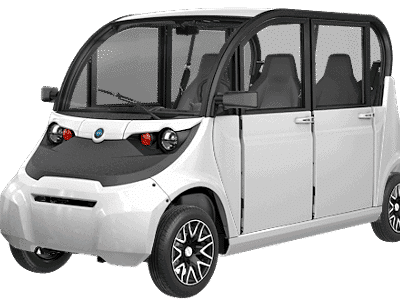
 As part of a larger tour of California, Varden Labs will be visiting Sacramento State University on March 14 and 15, from 10:00 to 4:00 each day, showing off the electric self-driving shuttle that they developed as students at the University of Waterloo.
As part of a larger tour of California, Varden Labs will be visiting Sacramento State University on March 14 and 15, from 10:00 to 4:00 each day, showing off the electric self-driving shuttle that they developed as students at the University of Waterloo.
Coordinating with Sacramento State’s Transportation and Parking Services, the Varden Labs shuttle will navigate a pre-determined route around the campus, with no driver, allowing students and staff to talk to representatives from Varden Labs and take rides in the shuttle.
Last month, Varden Labs staged similar demonstrations at Fresno State University, having reached out to Dr. Ram Nunna, dean of the Lyles College of Engineering with an offer to stage a demo of their self-driving shuttle during National Engineering Week.
“In the next five years I think were are going to see a lot more companies doing this around the world. In Europe already we are seeing some companies implementing this on university campuses,” said Nunna to Fresno student-run paper The Collegian.
While much of the media attention around autonomous vehicles tends to focus on individual cars used for personal commuting, the market size for shuttle service and delivery vehicles is probably equally large and arguably more important from the standpoint of smart city infrastructure.
While Varden Labs’ initial focus is on slow-moving shuttles and closed-circuit vehicles, the team has ambitions that encompass every aspect of self-driving technology.
“Self-driving technology has the opportunity to make transportation effortless in a way it has never been, removing the need to own a car, waste hours every week driving or the hassle of parking,” said Varden Labs CEO Alex Rodrigues. “Just call it on your smart phone and it will take you where you want to go. At Varden Labs we’re working on bringing that effortless transportation to Canadians as soon as possible.”
Unlike autonomous vehicles that navigate on their own to whatever destination the passenger demands, a shuttle makes repetitive loops that don’t vary in their trajectory, the only variation being that they can respond to obstacles and other vehicles that move through their pre-programmed path.
Human error accounts for anywhere between 90% and 99% of traffic accidents, depending on which study you refer to.
Kevan Shafizadeh, an interim associate dean of the College of Engineering and Computer Science at Sacramento State who will be bringing students from his class to watch the demonstration, said, “I suspect part of the reason Varden Labs is coming here to demonstrate this technology is because California is a hotbed for AV development in terms of transportation engineering, planning, and public policy.”
Last May, students Alex Rodrigues and Michael Skupien were recipients of the $5,000 Norman Esch Enterprise Co-op Award at the University of Waterloo.
From there, they entered into Waterloo’s Velocity Residency program, going on to win the $25,000 Velocity Fund award.
Last week, keeping the California tour going, they appeared at the 6th Annual PortTech Expo in Los Angeles, which focuses on “the latest advancements in environment, energy, transportation and safety/security solutions.”
Leave a Reply
You must be logged in to post a comment.



 Share
Share Tweet
Tweet Share
Share




Comment